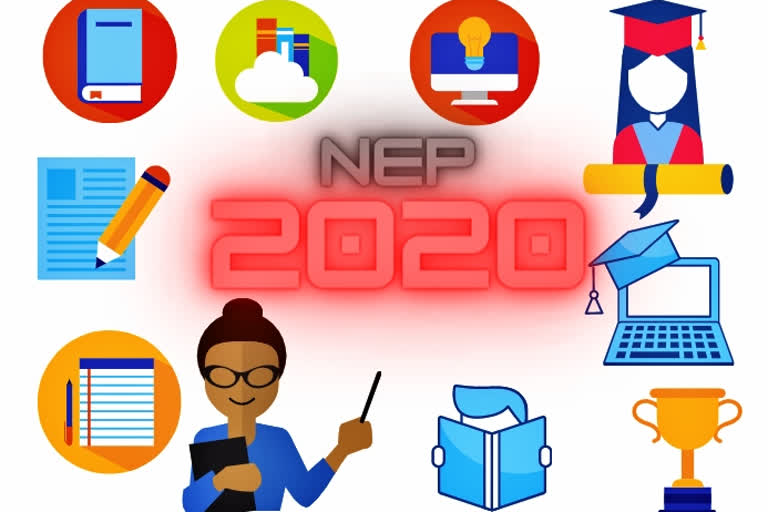New Delhi: The New Education Policy-2020 approved by the Union Cabinet has been welcomed by most of the academicians, educationist and the activists but at the same time many of them have also raised concerns about certain recommendations of the new policy.
The 5+3+3+4 formula for school education has been hailed by the experts but concerns have been expressed over the implementation of three language formula at the school level that recommends Indian/regional or mother language as the medium of instruction up to class 5th and if possible up to class 8th. During a live interaction on social media, Swaraj India leader and social activist Yogendra Yadav welcomed the recommendation and also addressed the concerns raised by parents on whether the Indian language formula will make their children a product with weak English.
"We all should welcome this move as it will develop more understanding into the children when they learn in their mother language. As far as the issue of English is concerned, I too as a student started learning English alphabets after 5th standard only but today I can read, write and speak English as per need. The language formula can be implemented in government schools easily but how will private schools with 'English Medium' tag take it, is a big question. It is but expected that they will like to continue with their English medium system' said Yadav during his live session.
The policy talks about the universalisation of school education for 3-18 years but there is no discussion about expanding the ambit of Right to Education Act-2009.
Read:| NEP to bring new opportunities for students: Jamia V-C
Right to Education Forum, an organisation with nationwide network working on the issue of education raised its concern over this point.
"We acknowledge the recommendation of universalisation of school education for 3-18 years but it will be achieved when as the policy is silent on the extension of Right to Education Act 2009," said Ambrish Rai, National Convener of RTE Forum.
The policy has made commendable recommendations for higher education also and the four years Under Graduate program with multiple entries and exit option has been hailed by almost everyone. The educationists have also applauded the recommendation of making the courses multidisciplinary. But when it comes to the entry of foreign universities in India, they doubt the intention and the output in future.
Talking to ETV Bharat, Professor Manipadma Datta, Vice-Chancellor, TERI School of advanced studies opined that allowing foreign universities to establish their campuses in India would have been a welcome step when the competition was even.
"We will have to think if we are ready for that kind of competition. The competition takes place best among equals but among unequals at large, it becomes really challenging" He said.
"The categorisation of Universities might also encourage elitism which will not be a good thing for a country like India. I hope the policymakers are also equally concerned and conscious about it. We certainly have to wait and see, We have found a lot of progressive message through this policy but the implementation and governance will ultimately be the thing to be taken into consideration" concluded Prof. Datta.
Another core issue that the policy pointed out is the commercialisation of education which is at large in the country. The document recommends that education should be considered as public service and the institutions should run it like not for profit organisation. Pointing out the issue of large scale commercialisation, Yogendra Yadav also said that the policy did acknowledge the issue but did not suggest any concrete measure to address it.
"You talk about the commercialisation of education but at the same time, you are inviting foreign universities to establish their campuses in the country. It might further degrade the value of Public Universities and colleges. Those who can afford will go to private universities and foreign universities, which will further increase commercialisation" he added.
The budgetary allocation to education has been recommended to be 6 per cent of the GDP. The same recommendation was made long back by the Kothari Commission as well but the budget of education in the country has remained around 4 per cent only until now. The implementation of The New Education Policy would require an overhaul of the education system that has prevailed for decades. The policy talks about infrastructural transformation in almost every part of it. Experts suggested that with a political will power, and a budgetary allocation as promised, it is achievable, but how far it actually gets done will be seen in the days to come.
Read:| It's a welcoming move: T. V. Mohandas Pai on NEP 2020


